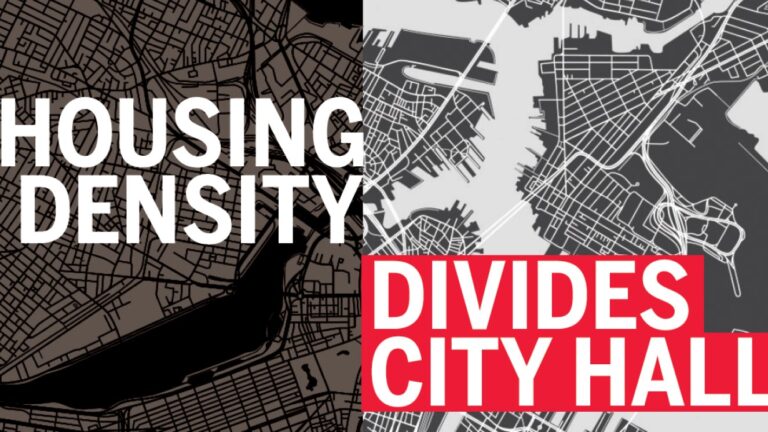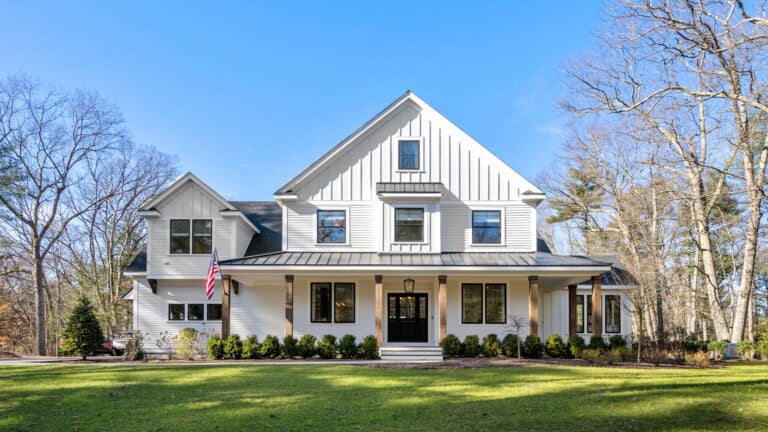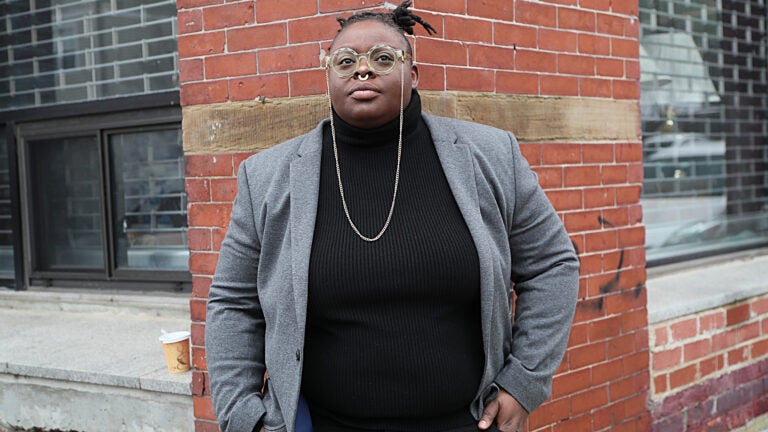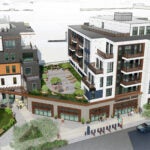Are zoning and City Hall at odds over this affordable housing boost?
A string of rejections for proposed basement dwellings in East Boston and Charlestown have raised eyebrows.

Boston’s Zoning Board of Appeal keeps rejecting one of the Walsh administration’s affordable housing solutions, and experts say Newton should be the model in avoiding this type of gridlock at Boston City Hall.
A string of ZBA rejections for proposed basement dwellings in East Boston and Charlestown raised eyebrows in recent months for seemingly going directly against Walsh. The outgoing mayor’s administration promotes density and includes basement residential conversions in its Additional Dwelling Unit program as ways to generate more affordable housing stock.
Christine Araujo, board chairwoman, cautioned in December that basement units could lead to overcrowding, but housing advocates argue that density is a crucial part in making Boston a more affordable place to live — that boosting supply should bring down prices.
“It is becoming quite frustrating to some folks who feel they are following the rules and yet, somehow, they don’t get any help,’’ said Lydia Edwards, a Boston city councilor whose district includes East Boston and Charlestown. “We want government to work well. That was the point of the petition because it wasn’t being as consistent as we need it to be.’’
Edwards filed a home rule petition regarding ZBA reform last year that called for, among other things, regular training to keep city workers and appointees up to date on changing policies and guidelines. Walsh later implemented the reforms via executive order. It isn’t always nefarious if there is a disconnect between policymakers and agencies, Edwards said.
But that doesn’t mean she is backing down on her push to streamline city initiatives for more housing. Edwards filed a hearing order earlier this month for an update. “I haven’t had someone call and celebrate with me about getting [approved for] a basement unit yet,’’ Edwards said. “There have been so many people who gave up from the very beginning.’’
For density to have a chance, some proposals shouldn’t have to go before the zoning board in the first place, one housing analyst said.
“It shouldn’t be political in nature or 10 people coming in to say yes or no. It’s too arbitrary,’’ said Richard Taylor, director of Suffolk University’s Center for Real Estate. “It ought to be clarified so the market knows how to secure [an additional or accessory dwelling unit].’’
Newton passed its accessory dwelling unit bylaw in 2017, and housing advocates see the measure as one of the most progressive in the state. The apartments can range from 250 to 1,200 square feet, depending on whether they are attached to the main dwelling. The owner has to live in one of the units.
Part of the motivation behind Newton’s move was to clear a pathway to legalization and code compliance for the estimated 1,000 illegal accessory dwelling units across the city, according to a 2018 report from the Metropolitan Area Planning Council. While it isn’t clear how many illegal units there are in Boston, the city has a similar logic behind its City Hall-sanctioned program.
“People were already doing it,’’ Edwards said. “We’re trying to bring them forward. It’s about making sure what we have is safe.’’
Newton’s measure is also by-right, meaning an applicant doesn’t have to go before a zoning board for approval; they just need to obtain a special permit.
“Newton has a very clearly defined system. You don’t even go to the zoning board. You fill out an application because it’s not a zoning issue,’’ Taylor said. “I think it should be taken out of zoning and into [the Inspectional Services Department] with clear conditions.’’
The Cambridge City Council adopted an ordinance in October that allows for the streamlined creation of “permanently affordable’’ housing that is denser than what might be allowed under current zoning.
Boston’s own approach to density seems increasingly confusing.
The Walsh administration appears to promote basement conversions on its Accessory Dwelling Units website, where it outlines homeowner eligibility and building code requirements and promotes a zero-interest loan program to help with construction costs.
What it doesn’t reflect is the ZBA’s apparent reluctance to approve basement dwellings.
“We’re seeing so many of these basements in Eastie that just don’t make sense,’’ Araujo said during a December hearing for a basement renovation on Paris Street in East Boston. “We’re not trying to move back to those overcrowded days of years gone by.’’
The board approved the overall project on the condition that it not include a basement bedroom. The ZBA has made similar demands regarding projects in other neighborhoods like Charlestown.
The ZBA denied the Globe’s multiple requests for an interview for clarification on its basement unit stance, but one city councilor is taking note of the disconnect. Edwards is among the most vocal at City Hall regarding the need to reform the ZBA. The lack of follow-through on a citywide initiative such as support for basement units and increasing density is only the latest in Edwards’s push for more transparency.
“The ZBA continues to be one of the main sources of constituent calls and e-mails to my office,’’ Edwards said in a statement regarding the ZBA hearing order.
The ZBA may not like the idea of density out of fear of overcrowding, but cities across the United States are increasingly turning to various levels of zoning that promote more housing as a way to bring down the cost of living. It is important to remember “density’’ doesn’t always mean a 60-story residential tower.
Minneapolis essentially banned single-family zoning in 2018 as a method to reduce racial segregation and usher in more affordable housing. The city’s new plan clears the way for three-unit housing projects on plots previously zoned for a single house.
The Brookings Institute calls this method “gentle density;’’ single-family zoning incrementally gives way to duplex and four-family developments. The plan also boosts supply, lowers costs, and retains the character of an existing neighborhood, the thinking goes.
Newton’s own housing plan took this ideology into account, but urban planners also emphasize density and accessory dwelling units aren’t the only solutions to Boston’s housing crisis.
Jennifer Molinsky, a senior research associate with Harvard’s Joint Center for Housing Studies who worked on a previous accessory-dwelling proposal for Newton, said density is only one piece of the puzzle.
“I think it is a viable thing to do. It’s one of many tools in a toolkit for expanding housing options in a community, particularly options that are relatively more affordable. It doesn’t solve the housing problem by itself,’’ she said. “There’s no silver bullet, but a lot of these solutions together could make a difference.’’
Cameron Sperance can be reached at [email protected]. Subscribe to the Globe’s free real estate newsletter — our weekly digest on buying, selling, and design — at pages.email.bostonglobe.com/AddressSignUp. Follow us on Facebook, Instagram, and Twitter @globehomes.







Conversation
This discussion has ended. Please join elsewhere on Boston.com